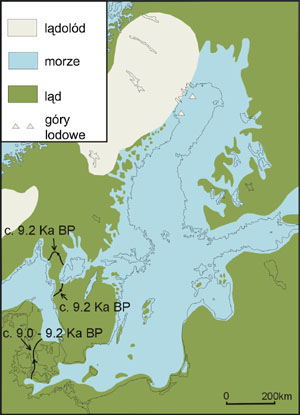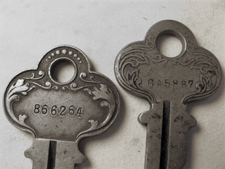"You could not step twice into the same river."
I work with a guy has been a Mets fan for 30 years. Back to the days of Mookie Wilson, back to the days of Jon Matlack. All the players have changed, many times over, since he embraced the Mets. "You're really not rooting for the people anymore," he says. "You're rooting for the shirts."
History unravels into anthropology, and then biology, geology. Americans owe our freedom to the French.
The French Navy doubled as America's standing fleet in the colonies' war for independence from the greatest naval power on earth. The French smuggled arms and supplies to the rebels by sea, and lent men and matériel to John Paul Jones and American privateers. Direct French participation in the rebellion began in July 1778, with the arrival of Admiral d'Estaing, and it grew in numbers and effectiveness throught the rest of the war. Already by the spring of 1779 Alexander Hamilton had written, "Their friendship is the pillar of our security." A year later they were our literal comrades in arms. On July 11, 1780, some 5,500 French soldiers under Comte de Rochambeau disembarked at Newport, Rhode Island, and joined Washington's command.
In early September 1781, Comte de Grasse and the French West Indies fleet sealed the trap on Cornwallis in Yorktown. At the Second Battle of the Virginia Capes, his 24 ships of the line drove off the 19 British ships under Admiral Sir Thomas Graves. Washington's command at that time, as he marched south to stuff the cork in Cornwallis' bottle, consisted of twice as many French as American troops. French engineers designed the trenches that ringed in the Redcoats at Yorktown, and the allied army that finished off the war consisted of 9,000 Americans and 7,800 French.
"Lafayette, we are here"
Lafayette was an essential help, an affable friend to the rebels, but the French crown had its motives. Yes, they wanted to humiliate their ancient rival, Britain, but I also wonder if they didn't intend to return some years later and conquer some or all of the new colonies. I've always suspected French aid in this period was not altruistic.
George Washington felt the same. He wasn't the last American president whose shrewd intelligence was misjudged. Looking ahead to the possibility of France regaining Canada from Britain, and restoring Louisiana to its empire as well, Washington considered the stranglehold France then would have on the new United States.
"Men are very apt to run into extremes; hatred to England may carry some into an excess of Confidence in France; especially when motives of gratitude are thrown into the scale. Men of this description would be unwilling to suppose France capable of acting so ungenerous a part. I am heartily disposed to entertain the most favourable sentiments of our new ally and to cherish them in others to a reasonable degree; but it is a maxim founded on the universal experience of mankind, that no nation is to be trusted farther than it is bound by its interest; and no prudent statesman or politician will venture to depart from it." [to Henry Laurens, Nov. 14, 1778]
If that was the case, their own revolution overwhelmed their ambitions before they got the chance.
We are in their debt. Montesquieu taught the American federalists about separation and balance of powers. The very language of the Declaration and the Constitution is more than half French -- a huge chunk of post-1066 English is French or Frenchified Latin (the exact percentage depends on whether you measure only the most commonly used words or every word in the English dictionary, but by any measure its enormous, perhaps three-fourths). Without the French influx in Middle English, what would be the opening language of the Declaration of Independence?
"Hwonne in wege þara þinga wihta ..."
or the Constitution:
"We þæt folc þære Gadertanga Scira, swa þæt we mare gegaderung gesceop ..."
Something like that.
But who is Lafayette?
Their language is not native to them; in the earliest historical times "France" was home to Celtic-speaking Gauls. Their name is not native to them; it comes from the Germanic Franks who seized Gaul at the fall of Rome and ruled it, then dispersed into it, leaving little trace but their name.
Gaul already had been overrun by the Roman legions and annexed to the republic, and between 200 B.C.E. and 500 C.E. Latin had replaced Gaulish as the native speech. The earliest form of the French language, a Paris dialect which emerged in the 12th century, was well over 90 percent Latin vernacular, with a few hundred Germanic words and a few dozen Celtic ones.
Trace back the unraveling strands further still. Glottochronology is the linguistic version of tree-ring dating. Over 1,000 years some 86% of the core vocabulary (the 200 most basic words) of an original language will be the same in its direct descendants. The level of mere chance is reached at 8%, which corresponds to 11,700 years. Thus we can reconstruct that, for instance, between about 8,000 and 7,000 years ago the people whose language is the ancestor of the modern speeches of Iran, Afghanistan, and India split off from those who speak the ancestral tongues of France, England, and most of the modern European nations. But there was no "French" or "German" then, no "Gauls" or "Romans," either.
That far back, you begin to trespass on geological time.
Here's a map of what geologists call the Ancylus Sea, the ancestor of the modern Baltic, as it looked about 9,200 years ago. See that white blob? That's an ice cap. Musk ox pawed the frost for willow shoots where Paris now stands, and "Sweden" was an island.
It was about the time we stopped chasing the herds, like dogs, and learned that our children lived past age 8 more often if we settled down and made things grow. The population shot up and we no longer lived at the whim of nature, half in danger of extinction.
We painted and planted peas and sewed and sang. Impossibly ancient: Those people were six times more distant from ancient Mycenae than ancient Mycenae is from us. And we live yet within the echo of their voices. The ancient Germanic root for "Scandinavia" -- *skadinaujo -- contains the word for "island." The Lenni Lenape dried fish and planted corn where Independence Hall in Philadelphia now stands, where the Declaration of Independence and the Constitution were signed. Their language retained, at the time the Europeans wrote it down, a word for "mastodon."



